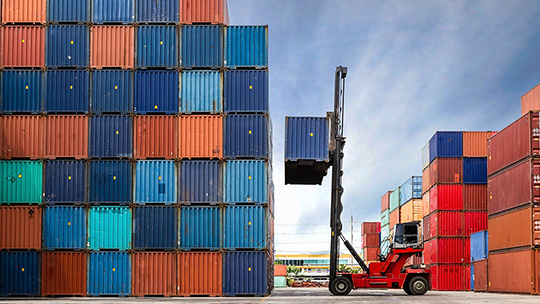Vietnam Seeing an Industrial ‘Renaissance’
By Lorenzo Martelli
Oct. 19 – Vietnam is gradually moving away from its traditional focus areas of industrial production such as textiles, food processing, rice and coffee to attracting investment in new sectors like electronic and high-tech manufacturing, research and development.
Manufacturers are seeking alternatives along with rising labor costs in Thailand and China – Vietnam’s labor costs are 35 percent to 45 percent cheaper than those in China’s second and third-tier cities and 20 percent to 35 percent lower than Thailand’s. Moreover, preliminary findings of the 2010 Vietnam Industry Investor Survey, released a couple of weeks ago, showed that the main factors that made Vietnam an attractive country for FDI are “political stability, market and low-cost labor.”
 RELATED: Dezan Shira & Associates’ Pre-Investment, Market Entry Strategy Advisory Services
RELATED: Dezan Shira & Associates’ Pre-Investment, Market Entry Strategy Advisory Services
Official statistical data validate this new FDI trend: “Nearly half of foreign investment in the first nine months was in industrial and manufacturing projects, with total pledges of US$4.91 billion in 300 projects” announced Vietnam’s Foreign Investment Agency. Hong Kong undertook the biggest amount of foreign investment with US$2.9 billion, Singapore came in second with US$1.5 billion, while Japanese projects followed with projects worth $927.3 million.
The beginning of the change in FDI trend, from traditional areas to more attractive sectors, is an important “stepping stone” for the Vietnamese economy that has been strongly stimulated by the government in the past few years and it pronounces itself quite confident about the long-term prospective. As has already been mentioned in previous VB articles, the general improvement of FDI quality is the main goal the Vietnamese government is trying to pursue.
The Instruction No.1617/CT-TTg, which has been recently issued by Prime Minister Nguyen Tan Dung, is an example of the direction the government is willing to follow. It requires ministers, leaders of authorized agencies, and chairmen of People’s Committees in provinces and centrally-run cities to tighten control over foreign direct investment projects in the 2011 – 2020 period.
Committees are required to review the grant of investment license for FDI projects, including requirements on inspection, supervision for the obligation implementation of investors on the capital contribution schedule, and capital mobilization.
However, in order to prevent a recent issue in FDI tendency, the Foreign Investment Agency (Ministry of Planning and Investment) proposed to the government to re-apply the provisions of the equity at 30 percent for foreign investors when participating in foreign direct investment projects in Vietnam.
We are referring to the issue that many FDI firms used investment licenses to be able to borrow capital from banks, but then they came back home without repayment of the bank loans, leaving “bad debts” amounting to US$80 million for Vietnamese banks. As per statistics from authorities, more than 230 foreign-invested projects from Taiwanese and Korean investors that had been licensed have been dissolved and gone bankrupt so far.
Dezan Shira & Associates is boutique professional services firm providing foreign direct investment business advisory, tax, accounting, payroll and due diligence services for multinational clients in Vietnam. To contact the firm, please email vietnam@dezshira.com, visit www.dezshira.com, or download the firm’s brochure here.
- Previous Article New Issue of Vietnam Briefing: International Taxation Agreements
- Next Article Real Estate Market Trends in Hanoi

































